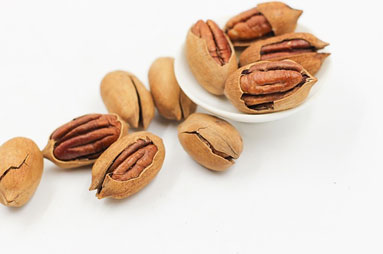Best Ways To Feel Full

There are plenty of supplemental tips you can use to help you successfully reduce your appetite.
These tips are all easy to apply and they’re scientifically proven to help with appetite.
Drink More Water
Not only does water help flush out toxins, help keep many body processes functioning usefully, and keep us from feeling tired, it’s also an effective help with hunger.
Virginia Techs Department of Human Nutrition ran a study, which showed that increasing water had more of an effect on weight loss than simply reducing calories:

“Water consumption acutely reduces meal energy intake”
“water prior to each main meal leads to greater weight loss than a hypocaloric diet alone”
Another study by the Children’s Hospital Oakland Research Institute was performed on 173 women. The results were that:
“drinking water may promote weight loss in overweight dieting women”“increases in drinking water were associated with significant loss of body weight”
Adding just an extra 0.5 liters of drinking water to the women’s average helped their appetite.
Drinking water before a meal fills the stomach and improves digestion. It’s an easy way to help support your weight loss goals.
Eat More Protein
Protein is the best macronutrient for controlling appetite, even more so than fiber.
The University of Washington School of Medicine unveiled a study on people who increased their protein levels. This study showed a:
“high-protein diet includes sustained reduction in appetite, ad libitum caloric intake, and body weight”This same clinical study saw increases in the sensitivity to leptin, the hunger hormone that ensures the body that it’s satiated.
Purdue University also ran studies showing that women who ate 30% of their calories protein were less hungry than the low protein group.
Good sources of protein include whey, which Nutrition Express mentions is :
“quickly digested and absorbed, resulting in a rapid increase in blood levels of amino acids”It’s also been shown to reduce food consumption according to the same group.
Spice Up Your Foods
Adding spicy foods, chili powder, or chilies can help reduce appetite according to recent studies.

The British Journal of Nutrition ran a study showing how red pepper could reduce appetite by improving the impact of the sympathetic nervous system.
Purdue University also revealed a study showing that red pepper:
“Preoccupation with food, and the desire to consume fatty, salty, and sweet foods was decreased”The key active ingredient believed to be causing this effect is called capsicum. It’s what gives chili their spicy flavor, and studies show it’s effective for help with appetite.
Increase Your Fiber
Though it’s not as filling as protein, fiber has the benefit of improving digestion. There are 2 forms of fiber to consider:
- Soluble Fiber: Found in foods like nuts, apples, oatmeal, and beans. This helps create bulk in the stool, and it regulates blood sugar levels. This in turn helps keep your appetite at bay, since your blood sugar is kept stable.
- Insoluble Fiber: You can find this in brown rice, the skins and seeds of fruit, grains, and other foods. It helps regulate appetite and makes sure food passes by quickly in the intestines and stomach. It’s advised to get around 25 to 30 grams of fiber a day. Luckily many foods have sufficient amounts of fiber
Make Sure to Get Enough Sleep
It’s recommended to get nightly sleep between 7 to 9 hours in order to properly rest your body.
When the body doesn’t get enough sleep it produces the stress hormone cortisol. This ends up signaling to the body to hold unto more energy, which in turn makes it hard to lose weight.
Sleep loss also reduces the hormone leptin, which is needed to help with appetite.
Web MD also adds that lack of sleep leads to more ghrelin:
“Ghrelin signals your brain that it’s time to eat”During sleep deprivation you increase ghrelin and decrease leptin, which makes it very easy to overeat.
Another review by Web MD showed how:
“Skimping on sleep sets your brain up to make bad decisions. It dulls the frontal lobe”This frontal lobe in the brain is responsible for decision making and controlling impulses. Therefore, it ends up making it hard to reduce appetite.
Control Blood Sugar
When blood sugar isn’t properly managed, it can lead to sensations of hunger.
The University of Buffalo concluded that heavy glucose meals such as high carbohydrate foods actually increased appetite. Their studies showed:
“support the glucostatic theory linking dynamic changes in blood glucose with appetite sensations”In this report people were hungry 4 hours after eating breakfast, and for several hours after their lunch.
High quality foods that help regulate blood sugar include:

- Grapefruit.
- Greens.
- Whole Grains.
- Beans.
- Nuts and much more.
High protein and diets low in processed sugars can also help relate blood sugar for proper help with appetite.
Slow Down Your Eating
Approximately 20 minutes have to pass before the stomach can send a signal to the brain to let it know it’s no longer hungry.
People who eat too fast often feel bloated and heavy, because they eat past what their body is demanding.
The University of Rhode Island confirmed this by performing a study on 30 women who were told to eat slower. The results were impressive:
“eating slowly may help to maximize satiation and reduce energy intake”Here’s some steps you can follow in order to slow down your eating:
- Don’t multitask: By sitting down to enjoy your food and not focusing on anything else, you reduce the likelihood that you’ll eat without considering your pace. You can instead enjoy your food and focus in on the flavors.
- Cut food into smaller portions: You can do this by actually slicing your foods into chunks, or by eating off smaller plates. This will allow you to spend time eating portions, instead of feeling like you have one mass piece of food to eat.
The key is to slow down and chew your food instead of rapidly going through your plate.
All these tips combined are practical solution to help you properly help with your appetite for weight loss.